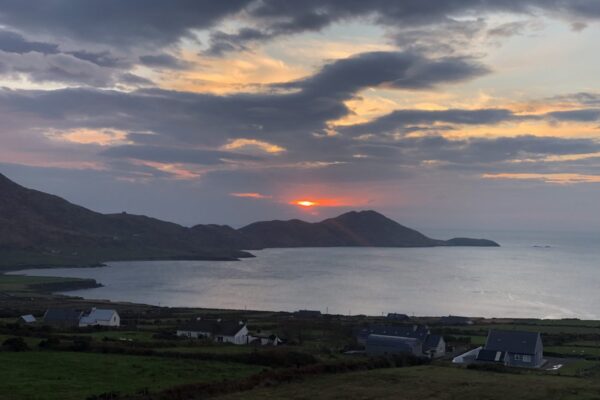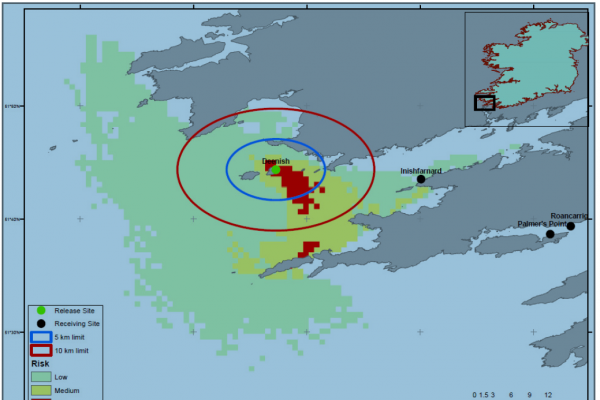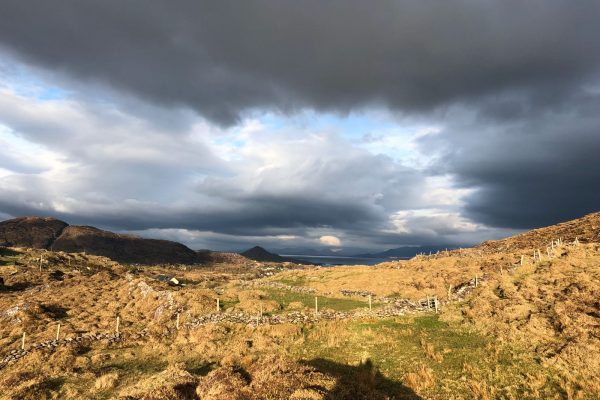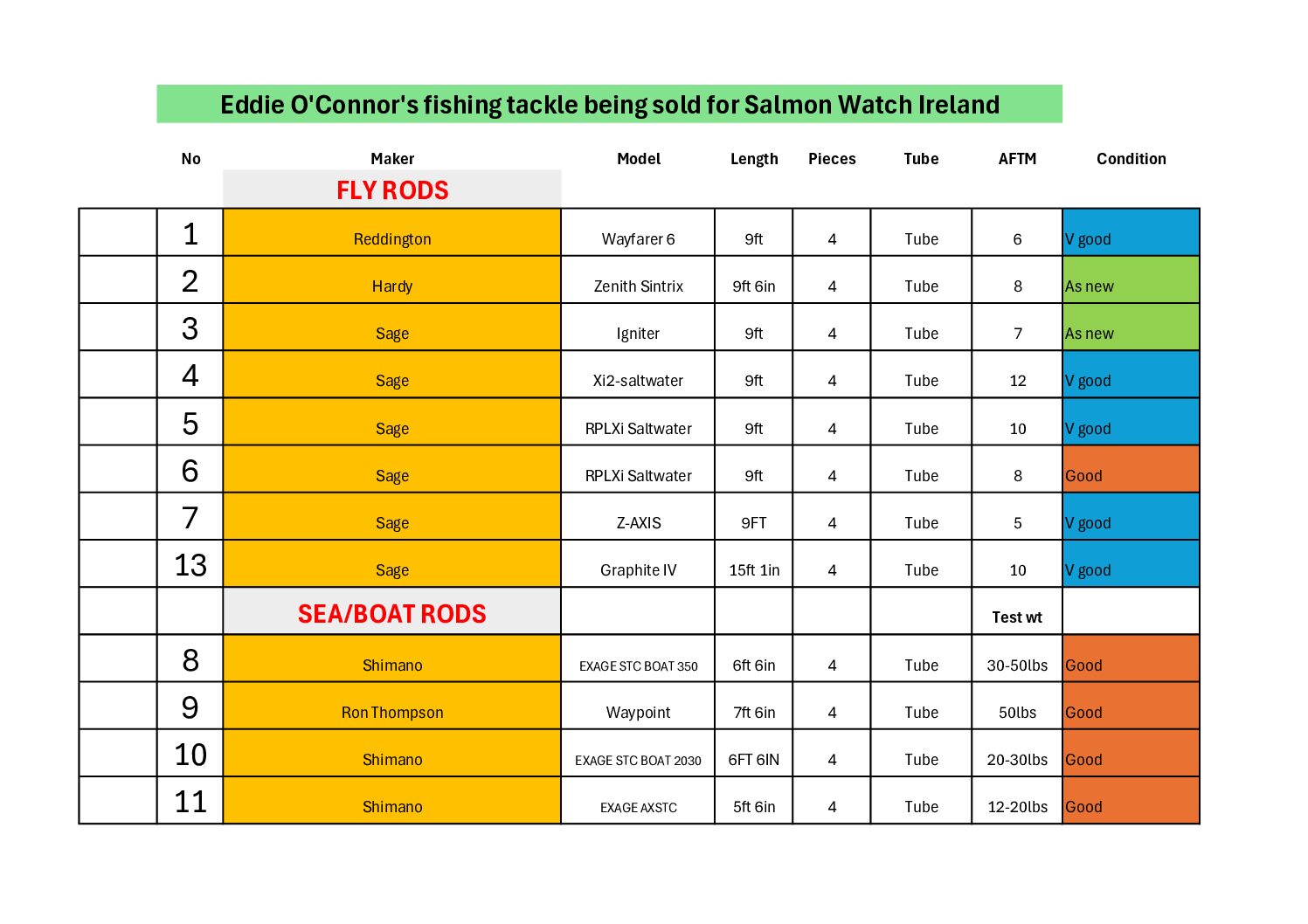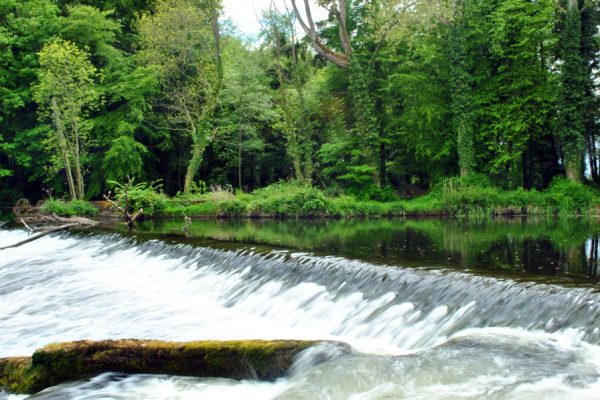-
A changing ecosystem – The decline of Atlantic salmon
In this issue, we introduce recent peer-reviewed scientific research that provides important insight into the continuing decline of Atlantic salmon at sea. While much attention has focused on rivers, the evidence increasingly shows that the greatest losses are occurring in the marine environment — particularly in the critical early weeks after young salmon enter the ocean. Three recent studies point to a major ecosystem shift in the Northeast Atlantic around 2005, with long-term declines in plankton productivity and marine energy availability. The findings suggest that reduced food availability — rather than simple temperature “shock” — is now a key driver of lower growth and survival. The implications are significant. If marine productivity remains depressed, recovery to historic salmon abundance will be extremely difficult without addressing every avoidable human pressure, both at sea and in coastal waters. This newsletter summarises the headline findings and provides links to the three scientific papers. We hope you find it informative and, as always, we welcome your feedback and continued support. Newsletter Number 31 - 10 Feb 2026
Continue reading -
Launch of Salmon Watch Ireland’s 2025 Policy Statement – A Call to Protect Ireland’s Wild Atlantic Salmon
We are pleased to share with you Saving the Irish Salmon – Policy Statement 2025, Salmon Watch Ireland’s updated and comprehensive plan to safeguard one of our nation’s most iconic species. This revised policy builds on our original 2019 proposals and reflects the urgent challenges now facing wild Atlantic salmon. Numbers have fallen by approximately 90% since the 1970s, and without decisive action, salmon could become a rare sight in Irish rivers within our lifetime. The document outlines: The current crisis in salmon stocks, its causes, and the growing threats from climate change, habitat loss, pollution, overfishing, aquaculture impacts, by-catch and barriers to migration. A science-based framework for reversing the decline, focusing on habitat restoration, barrier removal, predator management, and stricter regulation of exploitation and aquaculture. Policy recommendations for government, agencies, communities, and international partners, including reforms to the Salmon Conservation Fund and the creation of an independent Aquaculture Authority. This is not just a policy document – it is a call to action. Protecting salmon will require leadership, cross-sector collaboration, and strong public support. We invite you to read the full statement, join the conversation, and help us in building the momentum for change. You can access the full policy document in the attached. While the policy document is comprehensive, we anticipate that the detailed management of Ireland’s salmon resource will need to evolve in response to emerging challenges, ensuring the strategy remains effective and delivers lasting results. Thank you for your continued commitment to Ireland’s environment and biodiversity. Together, we can ensure that future generations inherit healthy rivers and thriving salmon runs
Continue reading -
Update 18 March 2025
Waterville Fishery: A look back at research in the period 1980 - 1986 It is calamitous that the fishery now has few sea trout and to repeat this research may not be possible today. Certainly, a situation which can be rescued but only with your help.
Continue reading -
Weekly Update 14 Dec 24 – Marine Institute Salmon and Sea Trout Census 2023
The Marine Institute Annual Report outlines the activities of the MI in 2023. It is a large piece of work but our interest is focussed on activities involving wild Atlantic salmon, sea trout and the large scale ranching program being carried out in Burishoole. The trapping system in Burishoole is quite unique in that it enables personnel to physically count all emigrating smolts and sea trout juveniles leaving the system and count and examine adult returnees including ranched salmon. The count is full (except if traps are overwhelmed by flood water) with each fish examined and this allows the removal of adult ranched salmon before they reach the spawning beds. The data series is unique with data stretching to over sixty years and is one of Irelands index systems which reports to ICES and NASCO. The wild salmon census indicates a survival rate of 5.6 % of fish who emigrated to sea in 2022 and continues a static and depressed return rate. This return may be slightly upgraded by return of multi sea winter fish in 2024 but these are few in numbers. The sea trout census is again alarming and it is reasonable to conclude that this stock is functionally extinct and the primary cause must be salmon farming in Clew Bay. It is apparent that this population was destroyed in the 1980's (Expansion of Salmon Farming) and obviously reached such a low ebb that recovery is probably out of the question unless salmon farming is removed from the area. It is interesting that sea trout are included in the nature restoration law and what better place to start their rehabilitation where progress in restoration could be accurately followed. At this stage it could take decades to rehabilitate the population back to functioning as a self sustaining stock. While not having accurate access to the amount of ranched juveniles released it is possible to suggest that their survival has reduced significantly in the past number of years which coincides with poorer returns of wild fish. The following video gives us a view on how the traps work and how the data is used to inform management of salmon stocks. Interesting facility but we certainly cannot condone the lack of comment by the MI on both the impact of salmon farming on wild salmon and the silence regarding the collapse of sea trout stocks. Newport Research Video
Continue reading -
Deenish Island – Re-establishment ongoing
Deenish Island salmon farm is currently undergoing extensive upgrading (October 2024) for the next stocking of smolts in February 2025, despite being ordered to close in 2019. This demonstrates the very obvious failings of government bureaucracy whereby the appeal against closure is ongoing for nearly six years. It is depressing that such a situation is allowed to continue while the sea trout population continues to descend into oblivion. The Butler Pool, Waterville. The present situation is that MOWI have an appeal before the Aquaculture Licence Appeals Board for six years against closure and have also applied for a renewal and review of their expired licence earlier this year. MOWI have been permitted to continue to produce salmon despite their abject failure to comply with their licence terms and conditions. This farm is withing nine kilometers of Lough Currane and is essentially a reservoir for sea lice, disease and other pathogens which have driven the regional stocks of sea trout into crisis. This was once a famous destination for local , national and international visitors from April to October and is now essentially extinguished as a destination for angling. This is an a appalling situation and suggests that the Department of Agriculture, Marine and Food is hiding behind a wall of bureaucracy to allow continuation of this appalling practice at Deenish. It is well worth mentioning that up to three million Euro is being lost to the local economy each year through loss of revenue to Waterville and surrounding area. This is not to mention the appalling destruction of biodiversity. This film by Vincent Hyland demonstrates what has been lost to Waterville. These are now the Ghosts of times past. https://salmonwatchireland.ie/wp-content/uploads/2024/11/FDownloader.Net_AQOoERmIqysNQwhmGL9nTNXsNREiUUX1_GSqOp-_CZjAIVjyL0cvP6qAW56wgal3jPvMJBmviec_8L2wXi8kTRwk_720p_HD.mp4 We have made numerous submissions on the subject which can be viewed here: Deenish Submission Inishfarnard Kenmare Bay - Submission Complaint to EU - Sec 19 We are asking you to send to your local election candidates and ask their help in stopping this environmental disaster. The following video of Deenish Island Salmon Farm in June 2023 demonstrates the level of salmon stocked and the stressful reaction of the fish to high water temperatures. There has been over 40 percent mortality on this farm and others in Kenmare Bay resulting in circa one and a half million mortalities over the past decade. https://salmonwatchireland.ie/wp-content/uploads/2024/11/AQOGlPuMr9u2PdyAiIy1D35GAT7uT7pxzbenDmG2WtpgvvYTmHtBrydD1ifuwzut-1SUK7DoN5jW7By4TufrFNSx.mp4
Continue reading -
Marine Institute - Year in Review - Declining Salmon Count and Low Levels of sea trout The Marine Institute Year in Review 2023 includes a comprehensive count of wild salmon and sea trout for 2023 and demonstrates a declining and unstable population of wild salmon and dramatic population collapse of sea trout. The data covering the period 2019 to 2023 demonstrates a declining trend of survival at sea for wild salmon and reared grilse. It is interesting to note the much improved output of salmon smolts from the relatively higher return of adults in 2020 demonstrating a strong correlation between spawning numbers and smolt output. This system is below its conservation limit due to poor adult return rates and productivity is negatively affected by environmental factors in fresh water. It is evident that more spawning fish, especially fish that are in generally good condition as witnessed in 2020 deposit more ova thus increasing productivity. This is particularly important in rivers where salmon numbers are depressed and where every salmon should be allowed to spawn. This fits in with our policy relating to exploitation and while the majority of rivers are closed to exploitation some remain open and should be treated with caution. Anglers should consider their own conduct and limit their catch. We have advocated for a reduction in tags, one salmon in spring period and return of salmon over 65cm during the summer period while advocating for catch and release of all salmon in September. We have also advocated for a cessation of commercial netting of salmon. The Data demonstrates a reducing trend in sea survival from 10.18 percent in the cohort of smolts which went to sea in 2019, through to 2022 at 5.56 percent. The decreasing trend from 2019 to 2022 smolt cohorts is as follows, 10.18, 7.17, 5.88 and 5.65 (Provisional Data 2023) percent. It is alarming but not a surprise to see the declining trend in survival at sea. 2024 did show an increase in some catchments regarding grilse numbers and it will be interesting to see data from the Marine Institute in next years report. The paltry number of sea trout returning is not surprising and this graph really demonstrates the issue. Salmon Farming is the cause of this collapse and cannot be denied.
Continue reading -
Fish Counter Report 2023- Significant decline noted in grilse and late summer salmon
There would appear to be a significant downturn in 1SW salmon in 2023. This is very much in line with angling and commercial catches in 2023 and is in line with majority of countries in NE Atlantic which saw a substantial decline across all regions. The indicators would suggest that this year has seen a significant upturn on last years grilse run but spring salmon in 2024 is suggestive of poor survival of the same smolt cohort which supplied last years grilse. As this downturn is widespread it suggests a large downturn of conditions at sea. The report can be read here: IFI Fish Counter 2023
Continue reading -
Deenish Island – Six years and counting
The MOWI (Deenish Island) owned salmon farm located within nine kilometres of the once famous Waterville sea trout fishery has once again escaped judgement by the Aquaculture Appeals Board. This farm was officially ordered to close in April 2019 but has since operated unchallenged while pursuing an appeal against the closure. The sea trout fishery is effectively abandoned with a substantial loss of economic activity and the loss of many jobs associated with angling tourism. The text of the letter is as follows: "I refer to my letter of 05 September 2023 in which the Board indicated it anticipated this Appeal would be determined by 30 September 2024. The Aquaculture Licences Appeals Board (ALAB) reviewed this timescale for the determination of this Appeal at its meeting on 25 July 2024 and has formed the view it will not be in a position to determine these Appeals within that timeframe due to the ongoing collation of technical advice and the vacant position of an internal ALAB Technical Advisor. In light of this, as provided for in Section 56(3) of the Act, the Board hereby gives notice of its intention to determine this Appeal by 31 January 2025." The ongoing damage to Waterville and its angling reputation is continuing while sea trout stocks continue a rapid and accelerating decline. While Salmon Watch Ireland has successfully taken judicial review proceedings in regard to Bantry Bay we are conscious that the Deenish situation should be prioritised by all concerned with bringing back stability to sea trout stocks with economic benefits accruing to the local community. We are disappointed with the apparent apathy demonstrated by some within the local business community despite the best efforts of the local angling association (Currane Fisheries) and other conservation bodies to highlight the devastation occurring. This area more than ever needs sustainable tourism business and it is shameful that a lake like Lough Currane has effectively been consigned to the history books by the salmon farming industry. Make no mistake, salmon farming in open cage technology cannot coexist with healthy sea trout populations. It is also infuriating that the Aquaculture Licence Appeals Board has effectively allowed MOWI to delay and consistently mend their hand in relation to this appeal. Recent submissions by Salmon Watch Ireland regarding Deenish Island: Submissions to ALAB - Deenish Island
Continue reading -
Eddie O’Connor’s fishing tackle being sold for Salmon Watch Ireland – Fundraising for a good cause.
Please Support Atlantic Salmon Conservation Kindly donated by the late Dr Eddie O Connor Attached is a catalogue of fishing tackle belonging to the late Dr Eddie O’Connor which is being sold to raise funds for Salmon Watch Ireland. The collection of tackle has been donated by Mrs Hildegaard O’Connor in commemoration of Eddie’s longstanding commitment to salmon conservation. If you are interested in acquiring one or more of these pieces, please make what you consider to be a fair offer having regard to the quality of the item and the cause for which it is being sold. An inspection of the item(s) of interest can be done in Dublin. The cost of shipping (if any) will be added to the price. You will note that the collection includes three reels made for Eddie by the renowned US company, Tibor (#s 23, 24 and 25). The two marine reels (#s 23 and 25) are, according to Tibor, equally suitable for salmon and trout. I would expect offers for these reels to reflect their quality – they are really special and in very good condition. I was with Eddie when, at different times, he caught tarpon and giant trevally on the Gulfstream! Similarly, the Nautilus reel (#28) is a quality piece of equipment suitable for fresh- or salt-water use. Needless to say, no warranties are being offered with these pieces. Where the reels are concerned, I have assured myself that those been offered are in working condition and, as the catalogue records, I have discarded three as being below standard. Please contact me at niall.b.greene@gmail.com if you have an interest and we can carry the matter forward from there. Feel free to pass this message on to others who might have an interest in pieces from this collection. UPDATE FROM SALMON WATCH IRELAND - HIGH COURT ANNULS LICENCE FOR SHOT HEAD/BANTRY BAY SALMON FARM The High Court recently annulled a licence awarded by the Aquaculture Appeals Board (ALAB) to MOWI to operate a new farm at Shot Head in Bantry Bay. A judicial review of the decision had been sought by Salmon Watch Ireland, Inland Fisheries Ireland and FISSTA. Go to High Court Judgement for more information on this significant decision in the struggle against open cage salmon farming. Catalog - Dr. Eddie O Connor
Continue reading -
Barriers Report – Joint Oireactas Committee
The Committee agreed to examine the issue of barriers to fish migration in Irish rivers as part of its 2024 work programme. The Committee held a number of public engagements and received written submissions on this issue and acknowledged the difficult balance between flood risk management and conservation and enhancement of fish populations.This report contains ten recommendations which the Committee feels will serve to meaningfully address factors inhibiting the effective removal and mitigation of barriers in the Irish river network. Barriers Report 2024
Continue reading

